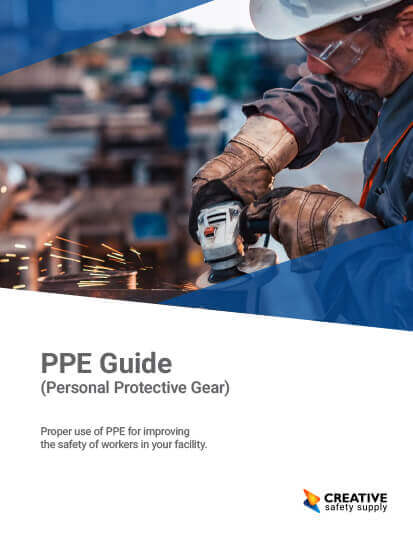
When working in loud environments people can become desensitized to the constant sound that is surrounding them. While the noise may not cause physical pain, it is often still causing serious damage to the hearing. In addition, constant exposure to loud noise has been linked to headaches, anxiety, and other health concerns. Because of this, it is important that all loud workplaces have an ear protection policy that is in place. This will identify when ear protection should be worn, what type of ear protection is needed, and any other relevant details.
Setting an Ear Protection Policy
All workplaces should have a set decibel level at which hearing protection becomes mandatory. OSHA states that any workplace that is at or above 85dB must provide earning PPE to the employees. Many companies actually set their standard quite a bit lower than that to help ensure their employees are protected. This is important because of the fact that even at lower noise levels, hearing damage can occur when the employees are exposed to it for long periods of time. The constant lower level noise of some machines, for example, can lead to hearing loss over time.
Providing Ear Protection
It is also important to note that employers are responsible for providing the needed personal protection equipment. This will typically be an over the ear ‘earmuff’ style option or hearing protection. In some areas, simple earplugs will be sufficient. As long as the NRR of the hearing device chosen makes it so the noise levels that employees are actually exposed to is below the 85dB, it will be sufficient to meet the requirements of OSHA.
Making Hearing Protection Mandatory
Whenever creating a hearing protection policy for the workplace, it is necessary to ensure employees take it as seriously as they would other types of personal protection equipment. If an employer lets employees get away with not wearing the hearing protection devices, they could be fined or face other penalties from OSHA. In addition, employees who aren’t provided proper hearing protection could be able to take legal action in the future if they can prove hearing loss.
